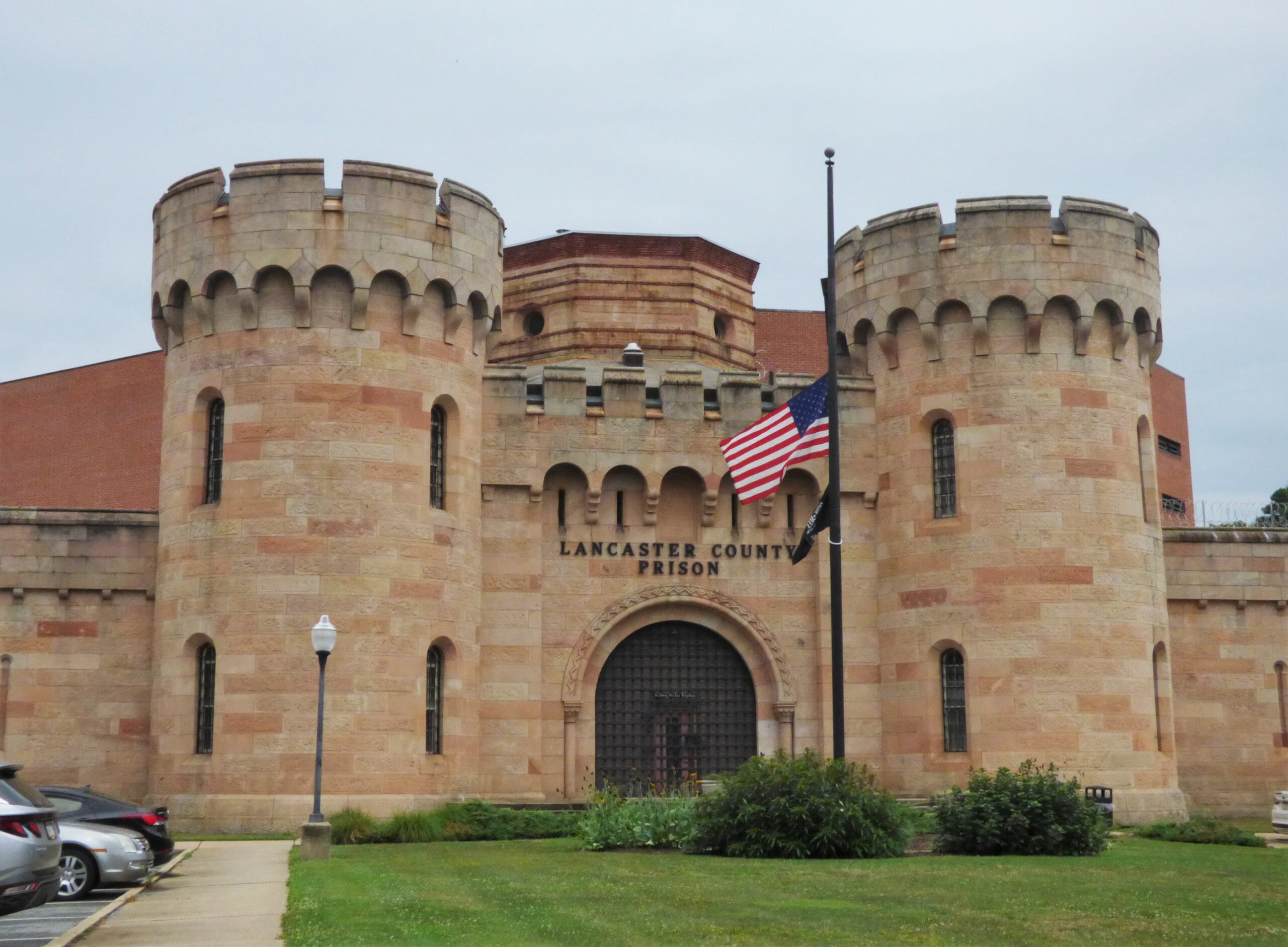Update: On Wednesday, as expected, the county commissioners signed off on the $500,000 state grant to allow Lancaster County Prison to expand its pilot Medication Assisted Treatment for opioid use disorder.
“We’re very anxious to get started,” Deputy Warden Joe Shiffer said.
Previously reported:
Lancaster County Prison is poised to expand its pilot Medication Assisted Treatment initiative for inmates with opioid use disorder into a fully fledged program.
The expansion is to be funded by a $500,000 grant from the Pennsylvania Commission on Crime and Delinquency. A vote to approve the grant is on the county commissioners’ agenda for Wednesday morning.
Medication Assisted Treatment, or MAT, treats addiction with a combination of counseling, behavioral therapy and medications that reduce withdrawal symptoms and cravings. Common medications include buprenorphine and methadone.
Researchers say MAT significantly improves health outcomes and reduces recidivism. The National Commission on Correctional Health Care endorses implementing MAT programs in jail and prison settings.

Lancaster County Prison launched its pilot MAT program in September, Deputy Warden Joe Shiffer told the commissioners at their Tuesday morning work session. It provides continuing treatment to those inmates who already have a MAT prescription when they enter the facility.
To date, 127 inmates have received buprenorphine through the MAT program, including 37 individuals being treated currently, Reentry Services Manager Christina Fluegel said. Another five have received methadone.
The prison will use the grant to build out a fully fledged MAT program, Shiffer said. Going forward, staff will be able not only to maintain existing prescriptions, but evaluate inmates for opioid use disorder and enroll in MAT those who are willing and for whom it is appropriate.
PrimeCare, the prison’s medical provider, is administering the pilot program and will continue in that role, providing the service and purchasing the medications.
The grant provides funding for PrimeCare to hire staff, including a MAT program coordinator, MAT nurse and certified drug & alcohol counseling personnel.
Security around MAT medications is tightly controlled, Warden Cheryl Steberger told One United Lancaster. Procedures are in place to ensure recipients ingest their doses and don’t divert them for use as contraband.
When MAT patients are discharged, their ongoing care will be coordinated through Donegal Substance Abuse Alliance, which will provide case management, recovery support, referrals and so on.
It will take about three months to hire personnel and get the program fully up and running, Shiffer estimated.
MAT “is really a best practice,” said county Commissioner Josh Parsons, who co-chairs Joining Forces, the county’s coalition of organizations fighting the opioid epidemic.
He and county Comissioner John Trescot asked Shiffer whether more state grants will be available to sustain the MAT program after the PCCD grant runs out in September 2024.
State funding is likely to be available, Shiffer said, but the program might need additional funding from the second round of opioid settlement funds that the county will be receiving.
The daily medication for a full year of MAT costs about $3,000 per person. For 40 people, that works out to $120,000; for 125 people, it’s $375,000. You also need additional staff as demand grows, Shiffer said.
About 30% of individuals entering the prison have an opioid use disorder, Fluegel said. As of May, the prison’s average daily population was 770; if 30% are eligible for MAT and half of those enroll in treatment, that works out to 115 individuals.
Shiffer said he knows of a prison with 125 MAT patients. That number is certainly possible at Lancaster County Prison, he told the commissioners.
The recidivism rate for MAT participants is 16.7% at 90 days and 36.4% at 180 days, Fluegel said. There is no recidivism data yet for the methadone program, as it is too new and too small.
The hope is that recidivism rates will decline as the MAT program scales up and the Donegal Substance Abuse Alliance’s reentry case management is put in place, Shiffer said.






